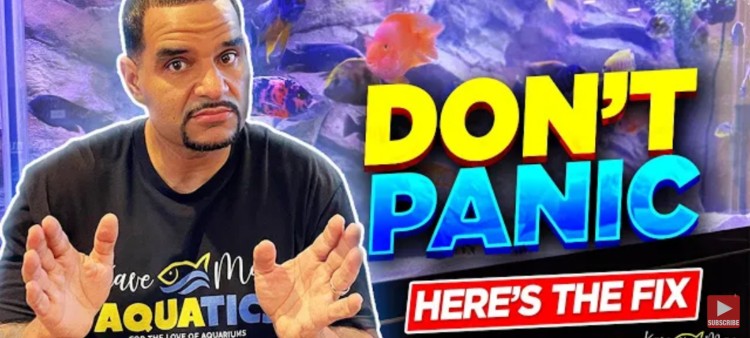Top 10 Reef Tank Maintenance Tips
- Oct 08, 2021
- Anshika Mishra
- 199 0 0

10. Cleaning Your Tank's Glass
Cleaning your glasses is an integral part of keeping a reef tank. It is an excellent opportunity to ensure that everything is operating correctly in the tank and inspect the silicon on your seeps. Equally important is the scrapper with which you clean your glass.
So, choose a scrapper that destroys the algae right off the glass with minimal effort. Cleaning up your glass and looking at your tank every day is essential for long-term success with the reef tank.
9. Checking Your Salinity
Whether it is checking the salinity of a freshly mixed batch of saltwater or checking the saltiness of your reef tank, it is incredibly important to maintain the proper levels of salinity in your tank because this is a marine environment that we are trying to recreate along with livestock that depends upon the adequate salinity levels.
8. ATO
As a reef keeper, it is important to verify that your auto top-off is appropriately working. This one does piggybacks on our last trip, and that is to ensure that we are keeping proper levels of salinity in our tanks. And if you have an auto top-off that is acting up or not doing what it is supposed to, you are going to have a huge problem.
Maintaining a stable environment in your reef tank is a massive part of being successful with keeping a reef tank. If you have an ATO that is putting in too much water or not putting in enough water, then you will have constant fluctuations in salinity that can lead to problems.
If you are not using an ATO at all, you might also run into many problems because, most likely, you will not be as consistent as an ATO. The reason being, you will not be able to add freshwater to battle the constant evaporation in your tank.
7. Cleaning Salt Creep
Salt creep is an indicator of two different things:
- it can be a possible leak that is happening
- it can also be that water is splashing over time, and what ends up happening is the water evaporates, leaving the salt.
To get rid of salt creep, you can use a damp paper towel and just hold it on to the salt creep, so that it loosens up and then it stays on the paper towel.
You must be careful of salt creep, not allowing it to fall into your display tank because it can burn corals. Therefore, cleaning up salt creep should be a part of your weekly maintenance on your reef tank.
6. Protein Skimmer
Cleaning your protein skimmer should be a part of your weekly maintenance, and if you are not doing this, it actually can reduce the life of your protein skimmer, and it can also constitute some other problems down the road.
While your maintenance schedule, you can simply take the collection cup off and clean the neck of the protein skimmer. Every six months, try taking the entire protein skimmer out of the sump and running it in a water and vinegar mixture.
Ensuring that you are cleaning your protein skimmer every week and doing a deep clean every six months will dramatically increase the life span of your protein skimmer. Considering that the protein skimmer is probably one of the most expensive pieces of equipment in your reef tank, it is important to ensure that it is running correctly and will last a long time.
5. General Inspection
General inception of all the equipment in your tank must be conducted on a daily basis. Following this quick tip will ensure that a small problem doesn't turn into a complete tank crash.
4. Clean Power Heads
It is best to give your powerheads quick scrub every month. This will ensure that it operates properly and is going to last a long time.
3. Changing Your RO/DI Filters
If you are not consistently changing your RO/DI filters on a regular basis, you could be potentially wasting your time, efforts, and money when it comes to adding water to your reef tank. Anybody who has been in this hobby for long enough knows that using an RO/DI unit is a part of keeping a long-term successful reef tank, and if RO/DI unit is not performing as it should, you are going to pay the price.
2. Testing
It sounds like a very simple and easy concept. But, so many of us are guilty of not being consistent when it comes to testing the water parameters of our tank. Using the test kits on a regular basis will actually let you know what is going on in your tank before big problems start to happen.
When it comes to testing kits, most people are strongly opinionated about which one is the best. But, if you are not testing your water on a weekly basis, none of it matters.
1. Water Change
Conducting a bi-weekly water change can do enormous things for keeping a successful reef tank. It reduces all the harmful chemicals from the tank and replenishes the excellent stuff that a tank needs.
Happy Fish Keeping






About author